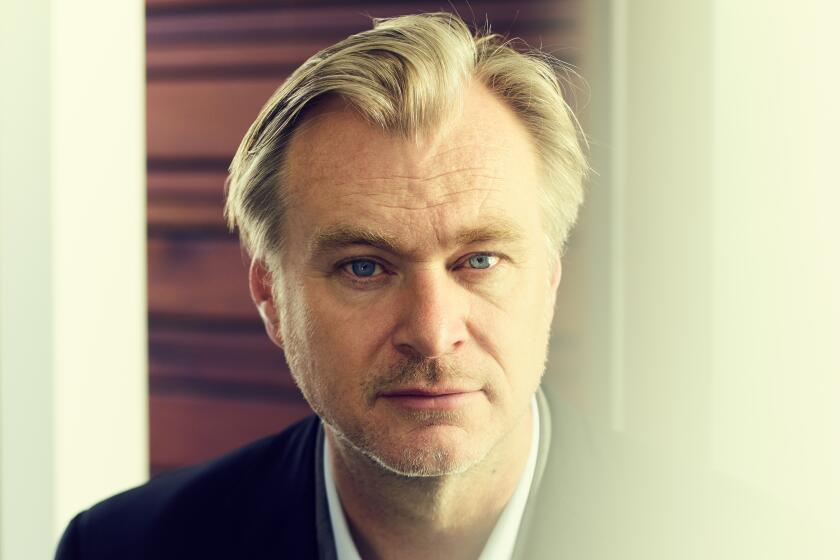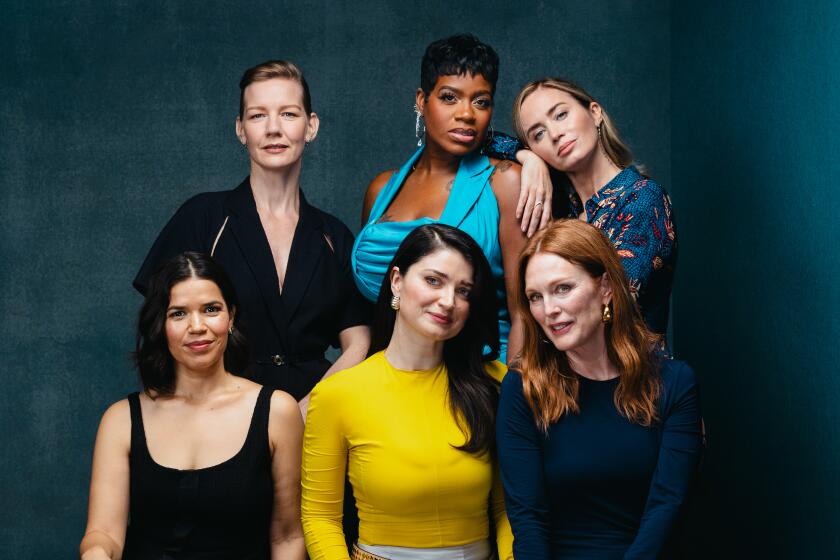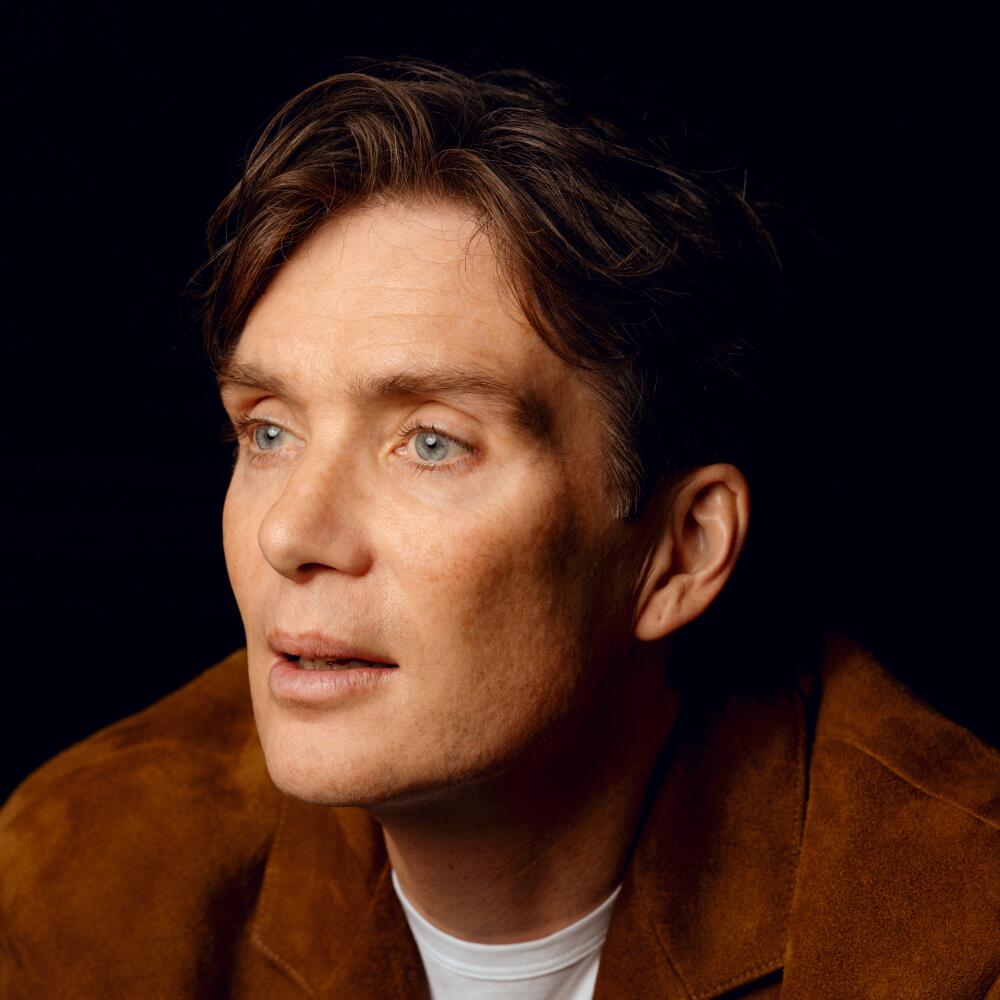
- Share via
Cillian Murphy had just spent the day filming what felt like 30 scenes on “Oppenheimer” with the desert sand kicking up and blasting into his eyes when his co-star Robert Downey Jr. greeted him, trying to boost his spirits. And — this is how Downey remembers it, and when the legend becomes fact, print the legend — Murphy launched into a lament about how, when he had returned to his “18-dollar-a-night hotel room” the previous evening, he found his bags in the hallway and thought, “F—! I haven’t checked out yet. I have to sleep!”
“Every indignity that could befall someone who’s trying to do something .... It was like the tears of Job,” Downey related after a recent screening of the Christopher Nolan blockbuster. “Forget the call sheet and the job. It was everything else. It was the most Irish experience I’ve ever witnessed.”
Diving into an explosive episode of 20th century history that launched the nuclear age, director Christopher Nolan unleashes the most ambitious film of his career.
Nearly two years later, Murphy and I are talking on a late-autumn day in L.A. He’s removing his coat and pulling his chair into the sun because, yes, he’s Irish, and part of the Irish experience is to soak up as much sun as possible when the opportunity presents itself. As to what Downey is ascribing to his native land, Murphy can do nothing but laugh.
“I don’t know if that means that Irish people are more predisposed to suffering,” Murphy says, smiling. “I think he’s being very sweet and saying we were like a troupe, moving at quite a pace. We were just staying at motels by the freeway and moving around. It was not glamorous. The way Chris works is that everything is equitable. No one has trailers or personal makeup. Everyone gets in a bus. It feels like independent filmmaking, but on a f—ing grand scale. And that’s the way I enjoy working.”
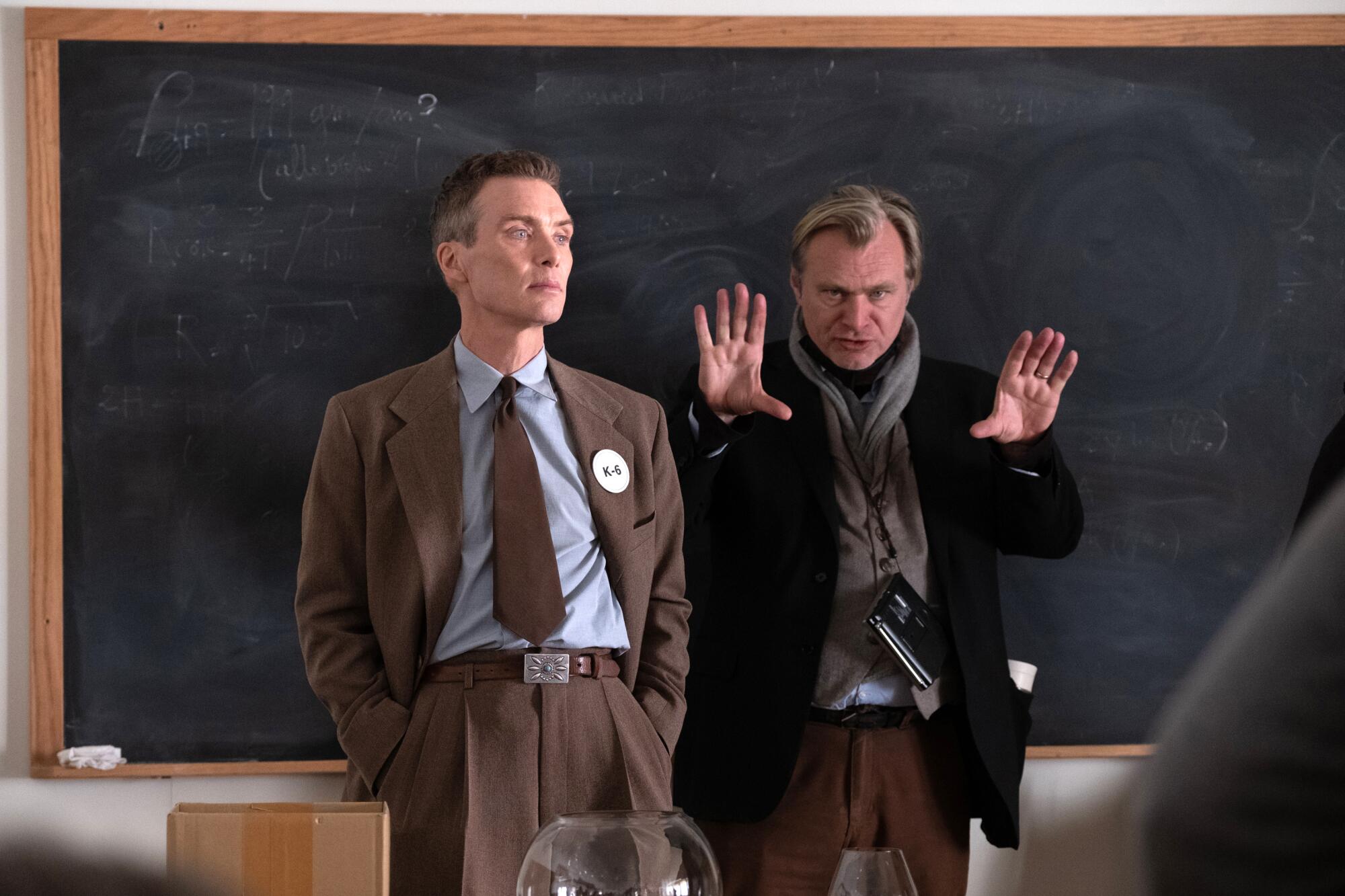
Murphy, 47, also enjoys not working, and he’s had a successful enough career in the two decades since his film breakthrough in Danny Boyle’s 2002 classic zombie film “28 Days Later” that he can describe such periods as being “happily unemployed.” That was where he was at a couple of years ago. He’d finished shooting the sixth (and final) season of the entertaining BBC crime drama “Peaky Blinders” and was in the midst of a glorious six months enjoying the company of his wife, Irish visual artist Yvonne McGuinness, and their two teenage sons. Then Nolan called out of the blue.
Actually, it wasn’t Nolan, but his wife and producing partner, Emma Thomas. It couldn’t be Nolan, because Nolan doesn’t have a phone, an eccentricity that’s either endearing or infuriating depending on the context. Thomas handed the phone to her husband, who told Murphy — in what the actor calls an “unbelievably understated British way” — “I’m making a film about Oppenheimer.” Pause. “I’d like you to play Oppenheimer.”
And just like that, Murphy was no longer happily unemployed. He was playing the title character in Nolan’s sprawling drama about the physicist known as the “father of the atomic bomb.”
“A big moment,” Murphy calls it, no stranger to restraint himself. Pause. “A biggie.”
In conversation, Murphy is pleasant and reflective when talking about his native country (he could and should write a book on the Ring of Kerry or at least narrate a self-guided tour) and the arts. I’d read that Nolan sent him photos of David Bowie wearing high-waisted, voluminous trousers from the singer’s Thin White Duke era as a visual reference for the gaunt silhouette he imagined for Oppenheimer, a man who possessed such a manic work ethic that he forgot to eat, subsisting on martinis and Chesterfield cigarettes. I pull up a photo of Bowie taken shortly before his death, wearing a sharp suit, black fedora and beaming smile.
“He looks a little alien, which is what we were going for with Oppenheimer, I think,” Murphy says. He holds onto my phone, looking at Bowie. “One of the greats. That last album [“Blackstar”] was f—ing extraordinary. What a gift to leave us with. Nobody else could have gone out like that.”
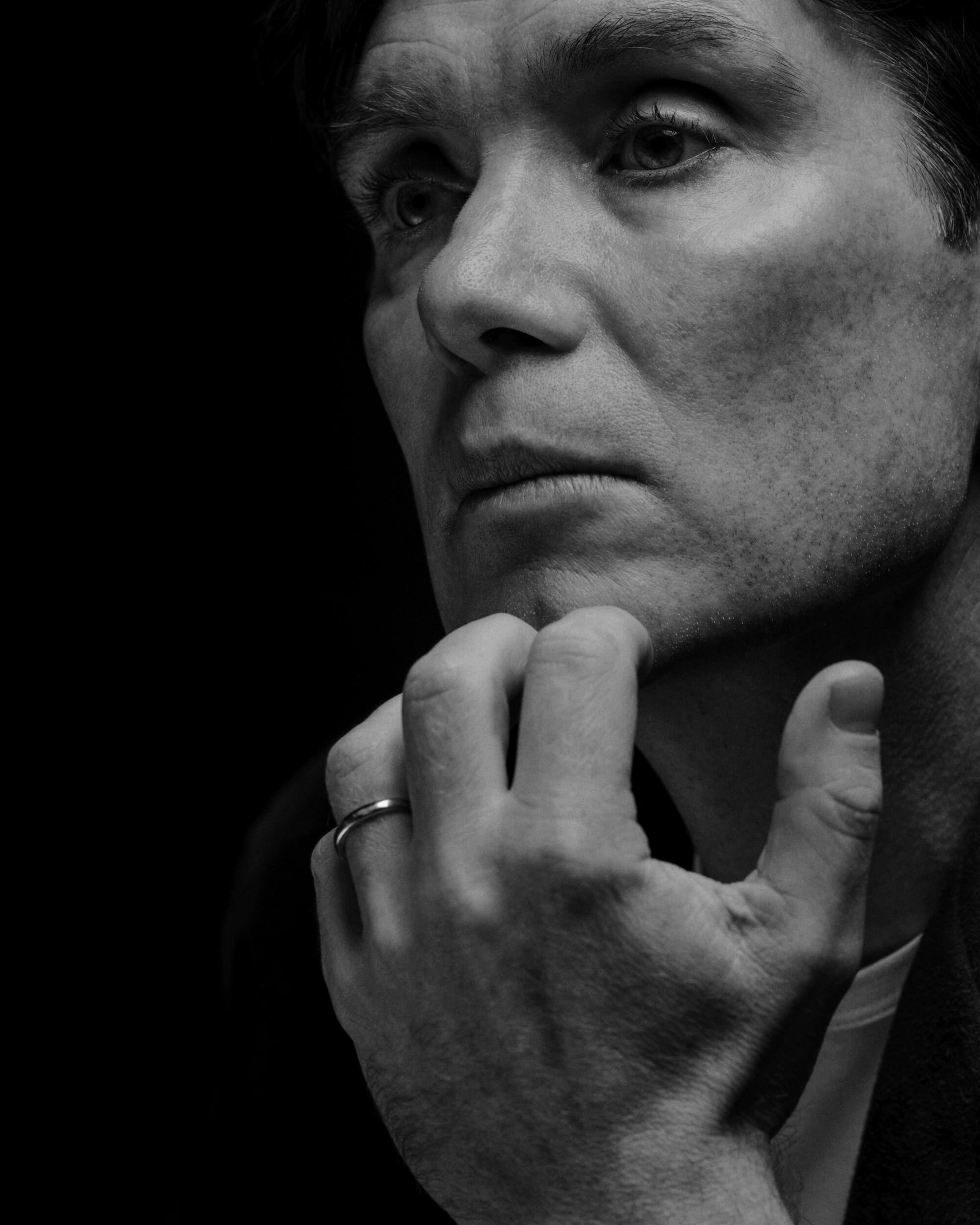
Murphy’s most striking feature — his piercing blue eyes — have been noted at length, for good reason. “Oppenheimer” co-star Matt Damon notes how he’d find himself distracted working with Murphy. “It’s a real problem when you’re doing scene work with Cillian [because] sometimes you find yourself just swimming in his eyes,” he told People.
Those eyes are what first attracted Nolan to him. The filmmaker was leafing through a newspaper while writing “Batman Begins” and came across a photo of Murphy from “28 Days Later.” He couldn’t shake the image of this actor with a shaved head and “crazy eyes” and made a note to meet with Murphy for Batman, a role that eventually went to Christian Bale.
They’ve now made six movies together, with Murphy playing the menacing Scarecrow in the “Dark Knight” trilogy, a petulant business heir in “Inception” and a character known simply — and quite accurately — as “Shivering Soldier” in “Dunkirk.” They share a mutual interest in conveying a character’s emotional conflict through close-ups that linger on an actor’s face and allow the audience to feel inner turmoil. In Oppenheimer’s case, it was the searing anguish of a man a bit late to realize and appreciate the consequences of what he’d created.
“To me, great screen acting is all about ‘show, don’t tell,’” Murphy says, “and being able to transmit emotion and energy just by force or presence or charisma.”
I ask him about influences in that regard, but Murphy demurs, saying that if he starts listing actors, he’ll wake up in the middle of the night, thinking, “F—, I left that person out.” He reiterates that his favorite movie moments aren’t big set pieces but watching actors in reflection, inactive, doing nothing, but revealing everything. “I find that compelling in the highest order,” he says.
Murphy had ample opportunity to do just that in “Oppenheimer,” portraying a character caught in a moral dilemma of his own making.
“I knew it would have to be a quiet, small performance, because the themes are f—ing huge,” Murphy says. “What’s happening inside his heart and his mind can’t be painted big, particularly when it’s captured on an Imax camera and it’s going to be shown on a f—ing 80-foot screen. I knew it would have to be delicate and tiny, most of it.”
Fantasia Barrino, Emily Blunt, America Ferrera, Eve Hewson, Sandra Huller, Julianne Moore offer insights into their work.
Murphy doesn’t like to dwell on what he did once call the “monastic experience” of the film’s 57-day shoot or on the months it took to decompress afterward. Such talk would be a little too close to the “Irish experience” Downey had mentioned. But all of these efforts did make me think about something that Emily Blunt, who plays Oppenheimer’s wife, Kitty, in the film and worked with Murphy in “A Quiet Place Part II,” noted about him.
“She said that off set, you’re a hoot,” I tell him, fishing for an example or two. Murphy does not oblige, but he does express how his friendship with Blunt created a trust that informed their portrayal of lifelong partners.
“She’s also one of the funniest people, and I have a rule that I can’t work unless there’s a lightness around the set,” Murphy says. “There has to be some levity. A lot of the films I do are quite heavy and go to some dark, challenging places, and you have to be relaxed to do that. So I don’t walk around in a state of f—ing angst. I need to feel at ease. I can’t be in that dark place all the time. I don’t have the stamina for it.”
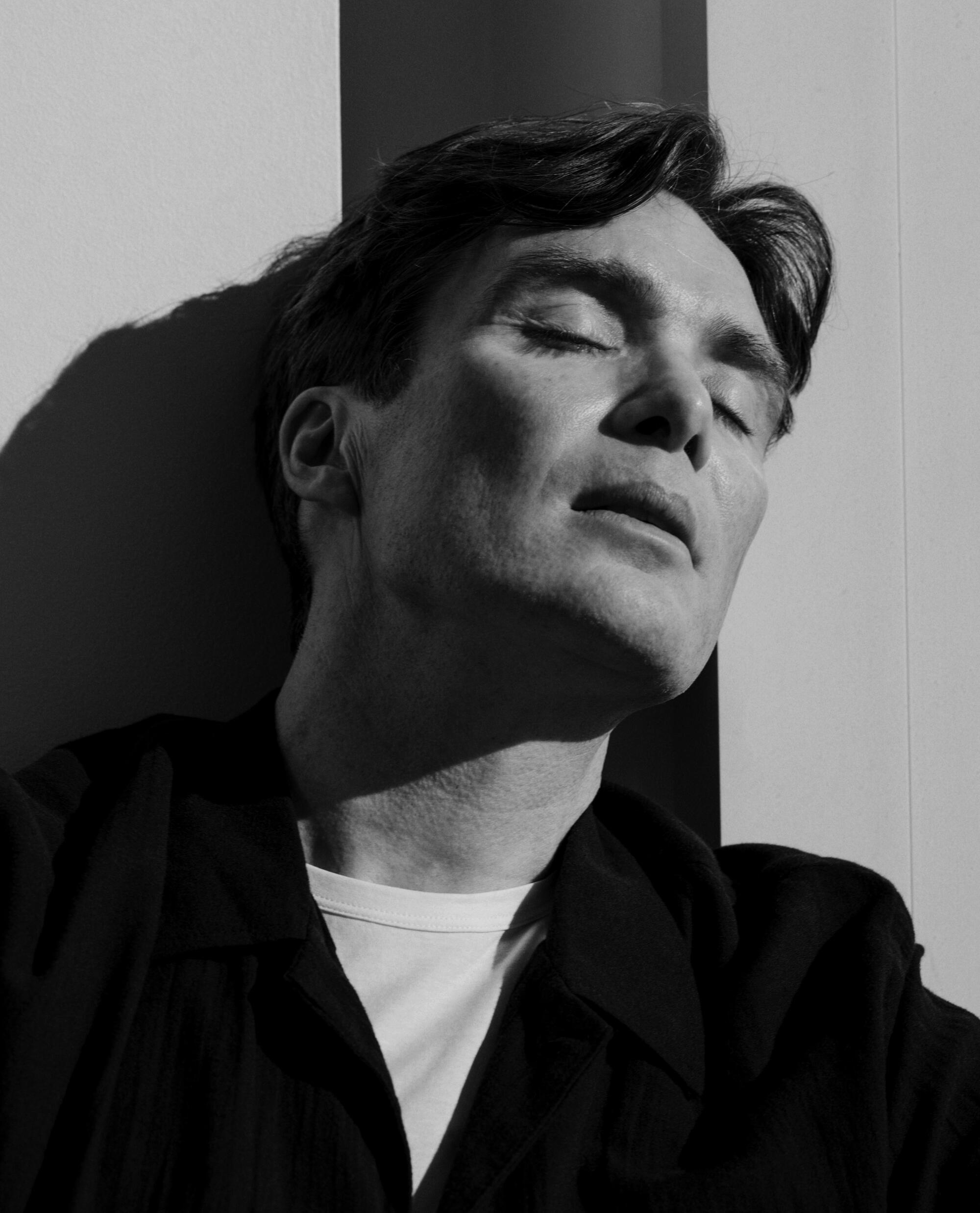
Murphy saw “Oppenheimer” at the film’s July world premiere in Paris. Two days later, he and the rest of the cast left the London premiere to show their support for the impending SAG-AFTRA strike. By the time he returned home to Dublin, his wife and sons had already seen “Barbie,” so Murphy went to the cinema by himself to complete the “Barbenheimer” experience.
How do you go incognito to the multiplex, I ask.
“I time going to movies very well now,” Murphy says. “With the ads and trailers, I always arrive a half hour late, slip in and then slip out.”
I grouse how that half hour feels like it’s getting longer by the year. Murphy agrees. And yet ...
“The greatest democratic collective art form is sitting in a darkened space with strangers,” he says. “To be part of a movie that people went to see multiple times and part of a great moment for cinema, that frenzy for those two films, was just lovely. I don’t know if we’ll ever see it again, but I’d like to hope so.”
More to Read
Sign up for The Envelope
Get exclusive awards season news, in-depth interviews and columnist Glenn Whipp’s must-read analysis straight to your inbox.
You may occasionally receive promotional content from the Los Angeles Times.

